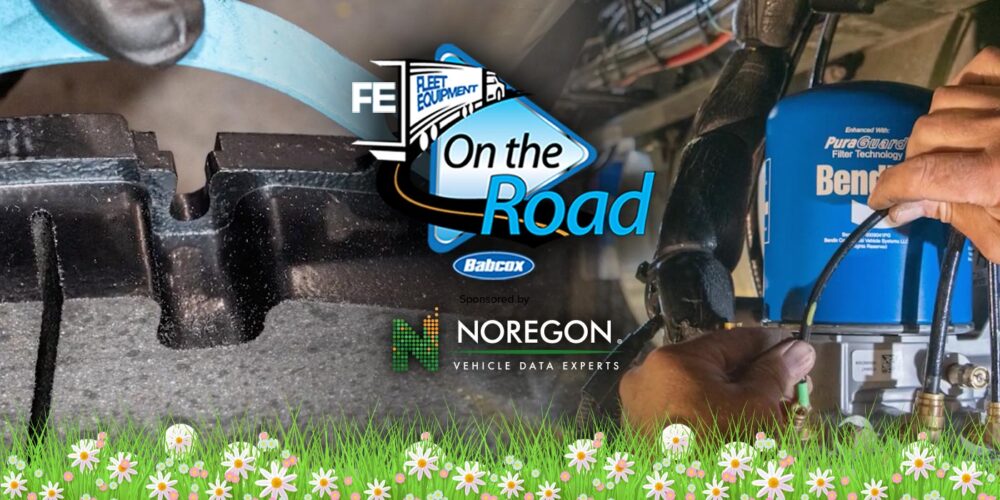Keeping track of brake wear and conditions will help ensure proper operations of your trucks even after the snow has melted. The method you use for tracking wear depends on the type of brakes used on your trucks and trailers: Drum brakes or air disc brakes (ADBs).
Regardless of which your fleet utilizes, the two critical components of a comprehensive preventative maintenance program includes maintaining good records and understanding operating conditions. But for the sake of this video, we’re going to concentrate on the specified maintenance needs of ADBs and some signs that they could use some post-winter TLC.
The winter season presents a significant challenge for every component of your truck’s air brake system. With sub-zero temperatures and the engine’s high heat, moisture can become trapped due to freeze-thaw cycles, humidity, and thermal cycling. The result is that metals undergo expansion and contraction, while plastics shift from a softer to a harder state.
That said, inspections should include looking out for cracking plastics, like in the air-line tubing that connects to the truck’s air system. Air fittings can also be affected by chemicals and temperature cycling. While driving, additional signs of winter-related impairment to an air brake system may manifest. It’s possible that leaks may be present even if they aren’t noticeable. If the time required to charge the tanks has increased by double or even triple, it is an indication that the air brake system is losing air. Similarly, if the system appears to be charging more frequently, it suggests that a higher volume of air is passing through the dryer.
In case your drivers are experiencing a sluggish sensation in the brake response, like the brakes are not reacting as swiftly to the pressure on the brake pedal, it could imply that the valve seals within the system have lost their lubrication due to corrosion or from the use of de-icing solutions during wintertime when the air system frozen.
It’s also in your best interest to investigate air dryers mounted on the frame rail and steel air tanks, which have been known to corrode and develop small punctures from dirt, sand, and road chemicals which can mix with water and form remnants that can clog and prevent proper operation of these kinds of components.
Spring is a great time to check for leaks around brake valves where O-rings might have been exposed to common winter chemicals like salt, or to completely replace valves that may be sticking internally due to loss of proper lubrication.
Brake wear can be significantly impacted by several variables other than outside conditions, including driving behavior, brake duty cycle, and operating conditions. Other factors, such as regulatory compliance and stopping distance, are also influential. The significance placed on each of these factors can differ among various fleets and respected operating conditions.
To additionally improve braking operations, avoid rust like the black plague. This can be achieved by utilizing brake pads with galvanized backing plates that aren’t likely to rust or corrode.
Fleet Equipment’s On The Road is sponsored by Rockland Flooring. Subscribe to our newsletter to catch every episode as we dive into the best practices and servicing information to keep your trucks On The Road.













